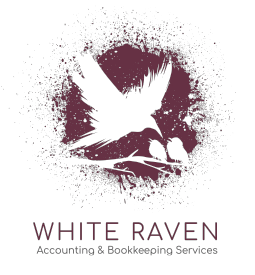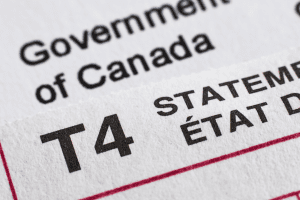Incorporating your business can be a game-changer for entrepreneurs seeking credibility, liability protection, and potential tax benefits. By taking this step, your company becomes a legal entity separate from its owners, offering a range of advantages. However, the process can seem overwhelming without proper guidance. This blog will walk you through everything you need to know about how to incorporate a business in Canada, ensuring you make informed decisions every step of the way.
Should You Incorporate a Business?
Before diving into the incorporation process, it’s essential to determine if it’s the right choice for your business. Incorporation offers key benefits like legal liability protection, increased credibility, and potential tax advantages. However, it also comes with added responsibilities, such as ongoing corporate tax filings and higher administrative costs.
Consider factors like the size of your business, your industry, and your growth goals. For example, small businesses and startups with minimal risks might benefit more from simpler structures like sole proprietorships or partnerships. If you’re unsure which structure aligns with your needs, it’s worth exploring the differences between incorporation and other options. Evaluating whether a sole proprietorship, partnership, or corporation suits your goals can help clarify your decision.
What Does It Mean to Incorporate a Business?
Incorporation means legally registering your business as a separate entity under Canadian law. Unlike sole proprietorships or partnerships, an incorporated business exists independently of its owners. This separation shields your assets from business liabilities, providing peace of mind.
Incorporation also grants you the ability to raise capital through issuing shares and provides certain tax benefits, such as access to the small business deduction. While it’s a more complex structure, it can be invaluable for entrepreneurs aiming to scale their operations.
Types of Corporations in Canada
Federal vs. Provincial Incorporation
When incorporating a business in Canada, you must decide whether to incorporate federally or provincially. Here’s how they differ:
- Federal Incorporation:
- Allows you to operate across all provinces and territories.
- Offers nationwide name protection.
- Slightly more complex and expensive than provincial incorporation.
- Provincial Incorporation:
- Limits operations to the province of incorporation.
- Offers name protection within the province only.
- Typically less expensive than federal incorporation.
Types of Business Structures You Can Incorporate
There are also different types of corporations to consider:
- Private Corporations: Most common for small businesses, limiting the number of shareholders.
- Public Corporations: Ideal for larger businesses looking to issue shares publicly.
- Non-Profit Corporations: For organizations that operate without the intent of making a profit.
How To Incorporate A Business In Canada: A Step-by-Step Guide
1. Choose a Business Name
Your business name is one of the most critical decisions you’ll make. It needs to be unique, descriptive, and meet legal requirements. Ensure the name isn’t already in use by conducting a NUANS (Newly Upgraded Automated Name Search) report. This report helps confirm the name’s availability and uniqueness.
Alternatively, you can choose a numbered company (e.g., 1234567 Canada Inc.) if you prefer a straightforward option.
2. Decide on Federal or Provincial Incorporation
Weigh the pros and cons of federal and provincial incorporation. Federal incorporation is ideal if you plan to operate across Canada, while provincial incorporation is sufficient for businesses confined to one province. Consider costs, ongoing filing requirements, and your long-term goals.
3. Prepare the Necessary Documents
To incorporate a business in Canada, you’ll need to prepare key documents, including:
- Articles of Incorporation: Outline the structure and purpose of your business.
- Corporate Bylaws: Define how your business will operate.
- List of Directors: Provide the names and addresses of your corporation’s directors.
These documents must meet federal or provincial requirements, depending on your chosen jurisdiction.
4. File Your Incorporation Application
Submit your incorporation application online. For federal incorporation, use the Government of Canada’s Online Filing Centre. For provincial incorporation, visit the specific portal for your province (e.g., Service Alberta or Service Ontario).
5. Register for Taxes and Permits
Once incorporated, you must register for a Business Number (BN) through the Canada Revenue Agency (CRA). Depending on your business activities, you may also need to register for:
- GST/HST accounts.
- Payroll accounts.
- Industry-specific permits or licenses.
6. Set Up Corporate Records
Maintain a corporate minute book to store all essential documents, including your Articles of Incorporation, bylaws, and shareholder agreements. Proper record-keeping ensures compliance with Canadian corporate laws.
7. Open a Corporate Bank Account
Finally, set up a dedicated corporate bank account. This account keeps your business finances separate from personal ones, simplifying accounting and demonstrating professionalism to clients and investors.
Costs and Timelines for Incorporating a Business in Canada
The cost of incorporation varies depending on whether you incorporate federally or provincially. Federal incorporation typically costs around $200 to $300, while provincial fees vary by region. For example, Alberta’s fees are approximately $275, while Ontario charges $360.
In addition to filing fees, consider other costs such as NUANS reports (around $13 to $26) and professional fees for legal or accounting services. Timelines for incorporation approvals range from 1 to 7 days, depending on the jurisdiction and whether you file online or by mail.
Advantages and Disadvantages of Incorporating
Advantages:
- Liability Protection: Separates your personal assets from business liabilities.
- Tax Benefits: Access to the small business deduction and other tax planning opportunities.
- Credibility: An incorporated business appears more professional to clients and investors.
- Growth Opportunities: Issue shares to raise capital.
Disadvantages:
- Increased Costs: Higher administrative and accounting expenses.
- Complexity: More regulatory requirements compared to other business structures.
- Double Taxation: Potential for being taxed on both corporate income and shareholder dividends.
Final Thoughts
Incorporating your business is a significant decision that can unlock numerous opportunities for growth and protection. However, it’s crucial to evaluate whether aligns with your goals and to understand the responsibilities it entails. By following this guide on how to incorporate a business in Canada, you can navigate the process with confidence. If you’re unsure about the best structure for your business, take time to assess all your options before proceeding.
At White Raven Accounting, we offer professional incorporation services to help you register your business with ease. Along with incorporation, we provide comprehensive bookkeeping services tailored to your business’s unique needs. Our team will guide you through the entire process, from choosing the right structure to managing your corporate records. Let us handle the details so you can focus on growing your business with confidence.





